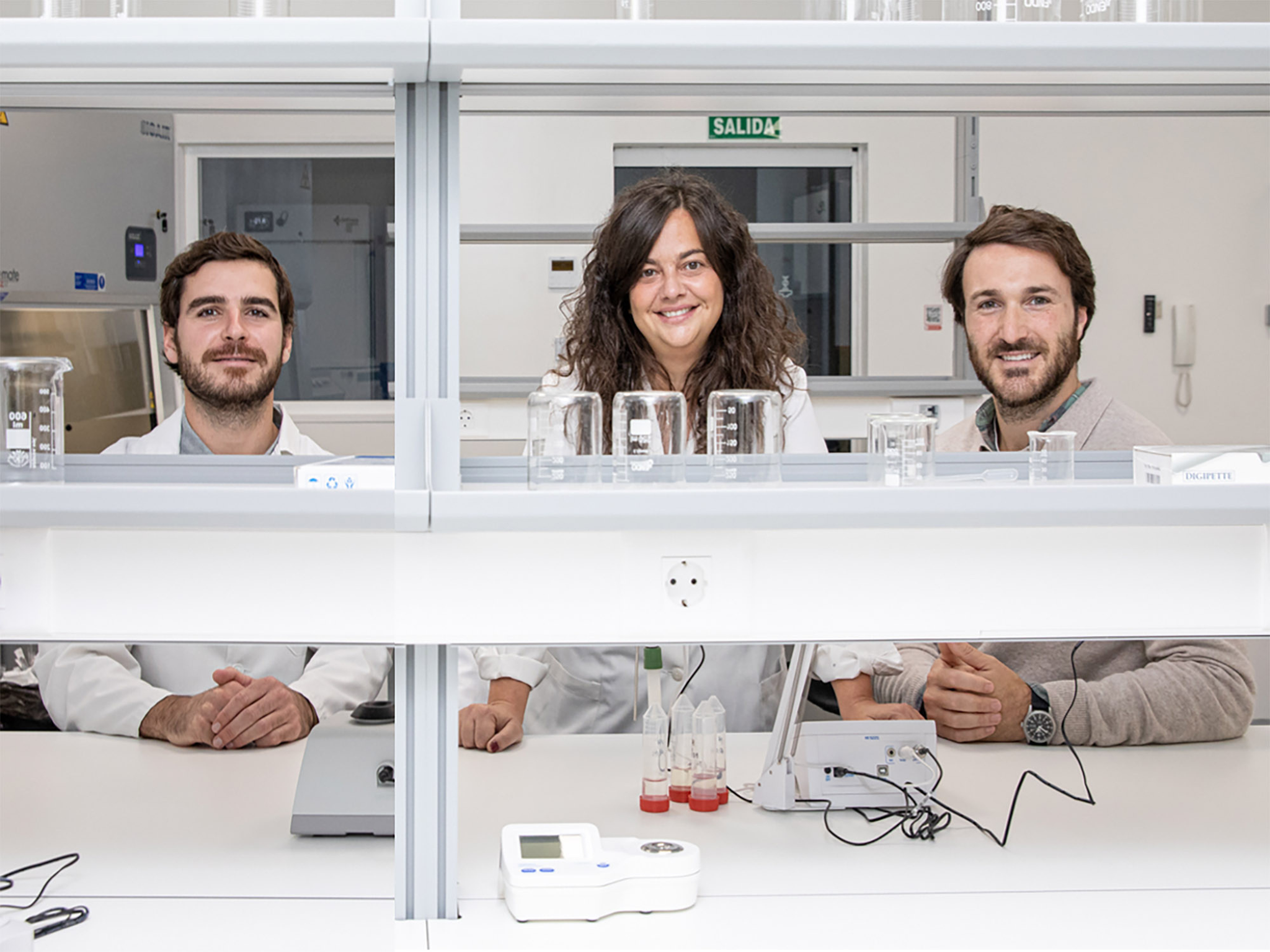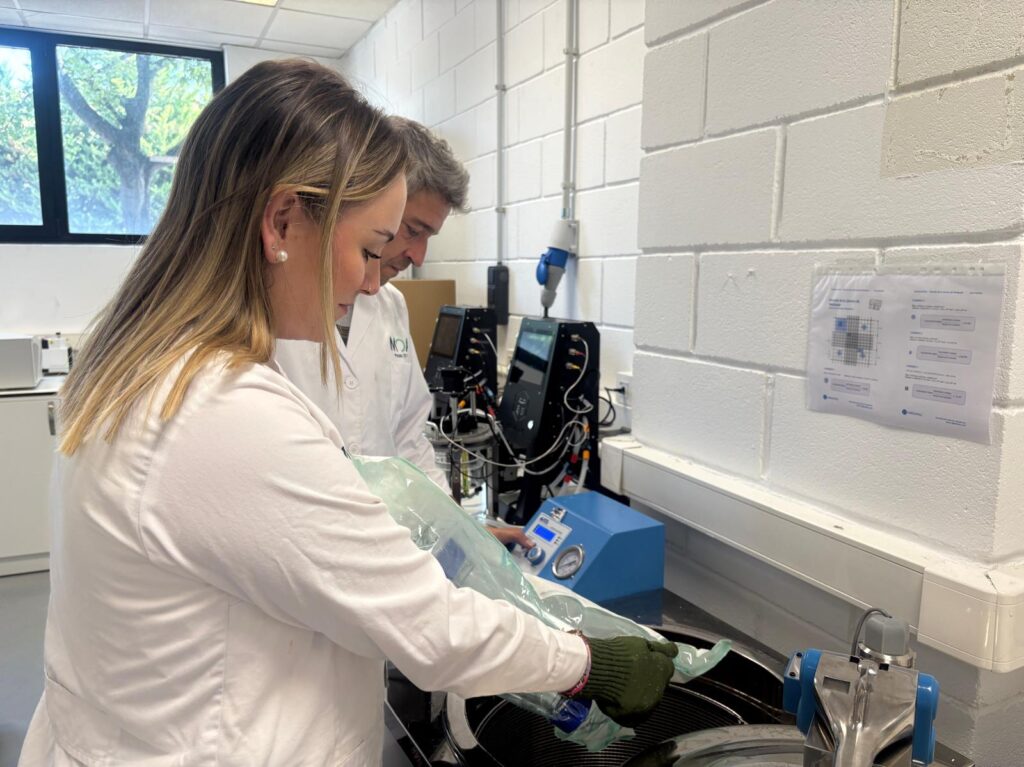
Spanish startup MOA Foodtech has unveiled the MOA Box, a turkey service for manufacturers to create high-value ingredients from starch byproducts through fermentation and AI.
To enable food companies to produce future-facing ingredients without the typical cost, time and regulatory barriers, MOA Foodtech has devised an out-of-the-box solution.
The Madrid-based firm has launched a turnkey service called the MOA Box, which uses biotechnology and AI-directed fermentation to convert starch-rich byproducts into market-ready, high-value ingredients.
A result of eight years of research, the platform offers manufacturers a fast, predictable, and commercially scalable route to product innovation at low costs.
“We decided to launch the turnkey service for starch-rich by-products because the opportunity is massive and immediate. Starch side streams are abundant, underutilised, and highly suitable for fermentation, yet most companies lack the technology to turn them into high-value functional ingredients,” co-founder and CEO Bosco Emparanza tells Green Queen.
“With our AI platform and fermentation expertise, we can offer a fast, de-risked, end-to-end solution that transforms waste into new revenue streams. It allows our partners to unlock value, improve sustainability performance, and differentiate their portfolios, while positioning MOA at the centre of a circular, scalable, and economically attractive ingredient ecosystem.”
How MOA Foodtech uses AI to create waste-derived ingredients

Emparanza founded the startup in 2021 with Susana Sánchez and José María Elorza, utilising biomass fermentation to develop high-value ingredients through the company’s AI platform, Albatros.
“It models and simulates over 300 bioprocess scenarios per hour, matching substrates, yeast strains, and process conditions to identify the most efficient, low-cost, and low-impact route. This allows us to design the optimal bioprocess before we even step into the lab,” explains Emparanza.
“Once the process is defined, we move into fermentation, where selected yeast strains convert starch-rich by-products into ingredients with targeted nutritional and functional properties. We then perform downstream processing, which may include separation, drying, extraction, or refining, depending on the final application.
“Finally, we validate performance in food matrices and prepare for industrial scale-up, ensuring consistency, safety, and cost efficiency. Because we integrate AI, bioprocess engineering, and ingredient science, we’re able to develop solutions in a fraction of the time and with significantly reduced risk.”
The AI Directed Fermentation tech results in a biomass boasting all essential amino acids and has a protein digestibility score of 0.9 (on par with soy, beef, eggs and casein). Combined with its functional attributes, the ingredient can be used in a range of applications, from plant-based meat and cheese to bread, sauces and pasta.
The MOA Box integrates seamlessly into companies’ existing infrastructure, giving them access to its fermentation and bioprocessing workflow, expert technical support, and formulation guidance. It also generates up to 17.5 times more value from starch byproducts.
“We’ve analysed more than 200 different side streams from multiple industries, and from that work we selected starch-rich by-products as our primary focus. These streams can come from the starch industry, bakery processing, cereal production, pea protein fractionation, and the potato sector,” says Emparanza.
“They are generated in very large quantities, they are stable and low-cost, and – most importantly – when you combine them with the right microorganism and the right fermentation process, the yields and conversion efficiencies can be exceptionally high.
“This is exactly where our AI platform becomes critical. Albatros evaluates each sidestream’s composition and predicts which strain–process combination will deliver the best technical, economic, and sustainability performance.”
First product developed for meat analogues, snacks and pet food

The MOA Box incorporates every stage of production, from substrate screening to regulatory validation and commercial rollout, allowing clients to move from byproduct analysis to a market-ready ingredient in six months.
MOA Foodtech’s team supports the entire process, from AI-led bioprocess design to scale-up, technology transfer, and go-to-market strategy, ensuring rapid commercial deployment without the need for in-house R&D or infrastructure investment.
Emparanza says his firm derives its revenue from a packaged turnkey service. “We use our AI platform to design a customised bioprocess for each client’s specific side stream. Once the optimal solution is developed, we transfer the full process and license the technology, enabling the client to produce the ingredient in their own facilities,” he explains.
“Our revenue comes from customisation fees, technology transfer payments, and ongoing licensing or royalties linked to production volumes.”
The company has validated its first full fermentation process in a 120-cubic-metre bioreactor with one of its industrial partners. “However, the core objective of this Box is not to build our own manufacturing footprint; it’s to transfer the optimised process to our clients through licensing, so they can produce the ingredient directly or through their manufacturing partners,” Emparanza notes.
Speaking of partners, MOA Foodtech is already producing its first ingredient at industrial scale and selling it to manufacturers for use in pet food, meat analogues, and snacks. And at this year’s FI Europe event in Paris, it will unveil another product with one of its customers.
“So you will continue to see our ingredients entering the market, both through our own developments and through co-developed products with industry players,” he says.
The turnkey service launch comes months after MOA Foodtech received €14.8M from the European Innovation Council, €12.5M of which was contingent on matching funding from private investors.
“We have planned the round for the end of next year, and we already have more than 50% of the required private investment committed,” Emparanza reveals. “This puts us in a strong position to unlock the €12.5M EIC funding as scheduled.”
The post Exclusive: MOA Foodtech’s AI Fermentation Service Turns Food Waste Into Sustainable Ingredients appeared first on Green Queen.
This post was originally published on Green Queen.